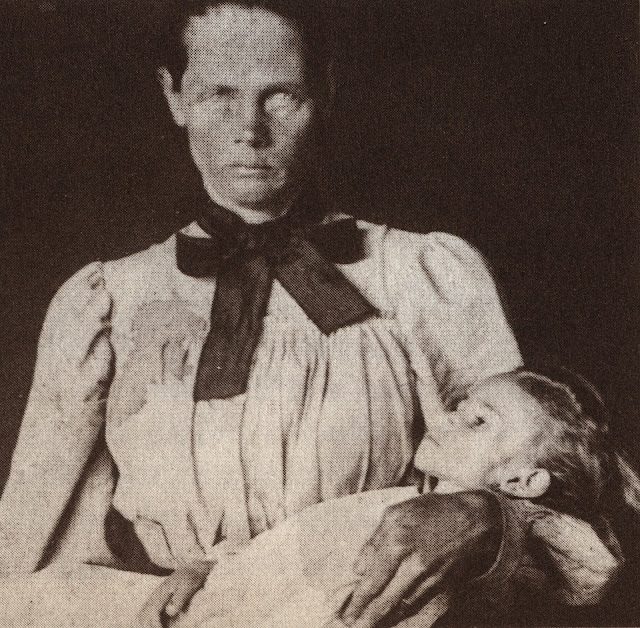Like faded flowers, thrown away: Steve Biko and the Boer women
 |
| A Boer woman with her dead child, the last of her children to die, photographed by Emily Hobhouse |
The women are wonderful. They cry very little and never complain. The very magnitude of their sufferings, their indignities, loss and anxiety seems to lift them beyond tears… only when it cuts afresh at them through their children do their feelings flash out. Some people in town still assert that the Camp is a haven of bliss. I was at the camp to-day, and just in one little corner this is the sort of thing I found – The nurse, underfed and overworked, just sinking on to her bed, hardly able to hold herself up, after coping with some thirty typhoid and other patients, with only the untrained help of two Boer girls–cooking as well as nursing to do herself. Next tent, a six months’ baby gasping its life out on is mother’s knee. Two or three others drooping sick in that tent. Next, a girl of twenty-one lay dying on a stretcher. The father, a big, gentle Boer kneeling beside her; while, next tent, his wife was watching a child of six, also dying, and one of about five drooping. Already this couple had lost three children in the hospital and so would not let these go, though I begged hard to take them out of the hot tent. I can’t describe what it is to see these children lying about in a state of collapse. It’s just exactly like faded flowers thrown away. And one has to stand and look on at such misery, and be able to do almost nothing.
Having lived in Moorreesburg for the past eight years, I could not help but to know the prejudice and hatred that still exists against English-speaking people in South Africa. Last night, as I watched Tony Jackman's excellent play "An Audience with Miss Hobhouse" the horror of the concentration camps had a new meaning for me.
Lynita Crofford is clearly on the top of her game, as she morphed between Miss Hobhouse, the Boer woman Tant Alie, assorted troops and war correspondents with the smallest of on-stage costume adjustments.
Tony's superb script had me chuckling and crying and, most importantly, made the experiences of the women stand out in stark reality.
Unfortunately Miss Hobhouse concentrated her efforts on the Boer women and children: it is perhaps a reflection of the times that the thousands of black people who died in separate camps were no more than a blip on her radar.
 I left with a better understanding of our history, but less of an understanding of the people who perpetrated such injustices in the years following the South African war. I know that many English-speaking people were complicit in and benefited from apartheid, but its roots were in what was essentially an Afrikaner policy. And I know too that many Afrikaans speaking people were vocal opponents of the system, and suffered for their beliefs.
I left with a better understanding of our history, but less of an understanding of the people who perpetrated such injustices in the years following the South African war. I know that many English-speaking people were complicit in and benefited from apartheid, but its roots were in what was essentially an Afrikaner policy. And I know too that many Afrikaans speaking people were vocal opponents of the system, and suffered for their beliefs.But today, on the anniversary of the murder of Steve Biko, I am wondering how people who had experienced such cruelty and suffering could have inflicted the same thing on others? The forced removals, the destroying of homes and communities, the deprivation of a nation of their basic human dignity.
And how is it possible that the same people, who remember the English with bitter hatred, are the same people who declare in their arrogant complacency that it has been 18 years and "people should be over apartheid by now".
If you are in Cape Town and want to book for An Audience with Miss Hobhouse, go to the Facebook page or to www.webtickets.co.za
Comments